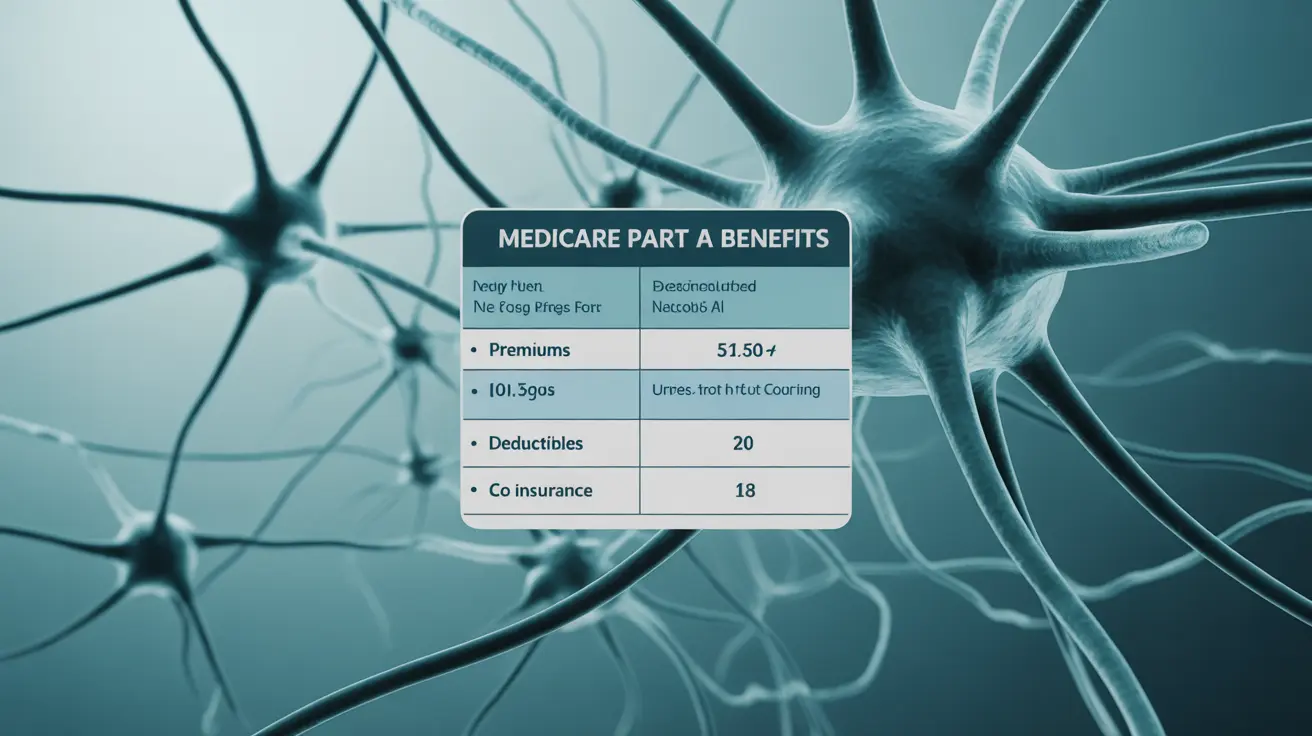Medicare Part A, often called hospital insurance, is a crucial component of Original Medicare that helps cover inpatient hospital stays, skilled nursing facility care, and some home health services. Understanding its costs is essential for proper healthcare planning, especially since these expenses can significantly impact your budget.
Whether you'll need to pay premiums, deductibles, or coinsurance for Medicare Part A depends on various factors, including your work history and the type of care you receive. Let's break down the costs and coverage details for 2025 to help you make informed decisions about your healthcare.
Medicare Part A Premium Costs
Most beneficiaries qualify for premium-free Part A through their work history or their spouse's work history. To qualify for premium-free Part A, you or your spouse must have paid Medicare taxes for at least 40 quarters (10 years) of work.
If you don't qualify for premium-free Part A, your monthly premium in 2025 will depend on your work credits:
- Those with 30-39 quarters of Medicare-covered employment pay a reduced premium
- Those with fewer than 30 quarters pay the full premium amount
- Premiums are adjusted annually based on program costs and inflation
Hospital Stay Costs Under Medicare Part A
Even with Medicare Part A coverage, beneficiaries are responsible for several out-of-pocket costs when receiving inpatient care:
Deductible
The Medicare Part A deductible applies to each benefit period, not annually. A benefit period begins when you're admitted as an inpatient and ends when you haven't received inpatient care for 60 consecutive days.
Coinsurance
After meeting your deductible, coinsurance costs vary based on the length of your hospital stay:
- Days 1-60: No coinsurance per benefit period
- Days 61-90: Daily coinsurance applies
- Days 91 and beyond: Higher daily coinsurance using lifetime reserve days
- After lifetime reserve days: All costs
Skilled Nursing Facility Coverage
Medicare Part A covers skilled nursing facility care when certain conditions are met. The cost structure works as follows:
- Days 1-20: Medicare covers 100% of approved costs
- Days 21-100: Daily coinsurance applies
- Beyond 100 days: Beneficiary responsible for all costs
Late Enrollment Penalties
If you don't sign up for Medicare Part A when first eligible and don't qualify for premium-free coverage, you may face late enrollment penalties. These penalties can increase your monthly premium by up to 10% for twice the number of years you delayed enrollment.
Frequently Asked Questions
- How much does Medicare Part A cost per month in 2025?
For most beneficiaries who have worked and paid Medicare taxes for at least 40 quarters (10 years), Medicare Part A has no monthly premium. Those with 30-39 quarters of work history pay a reduced premium, while those with fewer than 30 quarters pay the full premium amount.
- Who has to pay a premium for Medicare Part A and how is it determined?
Individuals who haven't worked and paid Medicare taxes for at least 40 quarters must pay a premium. The amount is determined by the number of work quarters credited, with those having fewer than 30 quarters paying the highest premium.
- What are the deductible and coinsurance costs for a hospital stay under Medicare Part A?
Medicare Part A has a deductible per benefit period. After meeting the deductible, there's no coinsurance for days 1-60, but daily coinsurance applies for days 61-90, and higher coinsurance rates apply for lifetime reserve days beyond day 90.
- How much does Medicare Part A cover for skilled nursing facility care and what are the out-of-pocket costs?
Medicare fully covers the first 20 days of skilled nursing facility care. For days 21-100, beneficiaries pay daily coinsurance. After day 100, beneficiaries are responsible for all costs.
- Are there penalties for not enrolling in Medicare Part A when first eligible?
Yes, if you don't qualify for premium-free Part A and delay enrollment, you may face a 10% premium penalty for twice the number of years you delayed signing up. This penalty is added to your monthly premium.




